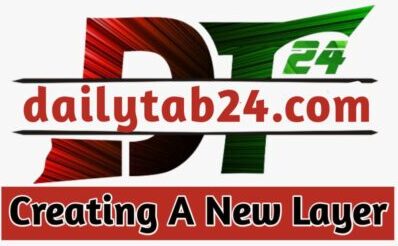Fuel Price: Fuel price may crash for this reason
By Emmanuel Sixtus
In an important change to improve the country’s fuel supply, the Nigerian government has given independent marketers permission to buy petrol directly from the Dangote Refinery. This decision, announced on Friday, October 11, 2024, means that marketers no longer have to depend on the Nigerian National Petroleum Company Limited (NNPCL) for fuel distribution.
The announcement now brings to an end a period of accusations and counter-accusations between Dangote refiners and the NNPC. The issue began after price discrepancies became an issue and pointed towards a move by the NNPC to multiply liftinf of fuel to enable it to dictate the price.
The NNPC fought assiduously to become the sole marketer of Dangote fuel, which would give it the power to decide the price it wants and which would also breed corruption and sustain the high cost of fuel pumps. The move soon became a major issue in the public domain, with Dangote denying the price put by the NNPC.
Nnpc AND Dangote appear to be having issues before the refinery was even completed. There was fear among the oil cabals in the NNPC that Dangote Refinery would alter their power and change the landscape of the oil industry, so they fought from inception to ensure they play a key role in determining what comes out of the refinery.
Initially, Dangot crashed the price of diesel in the country, which the oil cabals saw as an affront and worked to ensure the price of premium motor spirit didn’t go the same way as the diesel. They first pushed to make sure that Dangote refinery submits to NNPC alone, significantly discarding marketers, who must go through the NNPC before they lift fuel from Dangote refinery.
This change is expected to make fuel distribution smoother, reduce delays, and possibly lower fuel prices across the country. Nigerians believe that what the NNPC has been fighting is how to make life harder for Nigerians while they enrich their pockets, and with the news, there is now a sense of relief.
The Dangote Refinery, the largest in Africa, is seen as a key player in Nigeria’s oil industry. With the ability to process 650,000 barrels of crude oil per day, the refinery is intended to help Nigeria reduce its reliance on imported fuel.
Despite being a major oil producer, Nigeria has had to import refined petroleum products because it lacked enough working refineries, leading to price fluctuations and fuel shortages. Allowing independent marketers to buy fuel directly from the refinery is part of broader reforms by President Bola Ahmed Tinubu’s administration.
President Bola Amed Tinubu knows that his government cannot afford to block any opportunity it sees to lower the price of fuel or make life a bit easier for Nigerians. Fuel is a key catalyst to the country’s economy, and the president has ensured that the refinery embraces people’s friendly policy, obstructing the cabal’s move for dictate.
After removing fuel subsidies earlier this year, the government has been under pressure to find lasting solutions to the fuel crisis. The removal of subsidies led to a sharp rise in petrol prices, which has added to the economic struggles of many Nigerians.
The rise in fuel prices significantly affected transportation and general commodities, leading to protests against the federal government and the push for a minimum wage increase.
By granting direct access to the Dangote Refinery, the government hopes to improve fuel availability and lower costs by cutting out middlemen. This move will lead to face-to-face price negotiation with any willing marketer.
Experts believe this new setup will increase competition in the fuel market, which could help lower prices over time. However, some warn that the full benefits will depend on how quickly the refinery can increase production to meet local demand.
A petroleum analyst said, “This is a step in the right direction. If the refinery runs at full capacity and marketers distribute effectively, we could see more stable fuel prices and better availability soon.” The Independent Petroleum Marketers Association of Nigeria (IPMAN) has welcomed this decision, calling it a positive change that will help solve logistical problems in the fuel supply chain.
IPMAN members have often complained about delays and inefficiencies when working with the NNPCL, which used to control most fuel distribution in the country. Now, with direct access to the Dangote Refinery, marketers can avoid these issues and ensure quicker delivery to fuel stations across Nigeria.
While many view this policy change positively, some challenges still exist. Observers point out that poor road conditions and limited storage facilities could hinder efficient distribution. Additionally, the impact of removing subsidies still affects consumers, who have seen fuel prices increase since the reforms began.
Overall, the government’s decision to allow direct purchases from the Dangote Refinery is seen as a critical step in addressing Nigeria’s ongoing fuel supply problems. As the refinery increases production and independent marketers take on more responsibility, there is hope that these changes will lead to more stable and affordable fuel prices for Nigerian consumers in the future.
There is hope that marketers will not form anti-people groups to take the grand plan of the NNPC. Even though there is no plan from the government to set up a committee or task force to ensure marketers don’t bloat or sell far beyond the price issued by the refinery, understanding the sufferings of Nigerians is key to stabilising the price to soothe everyone.


